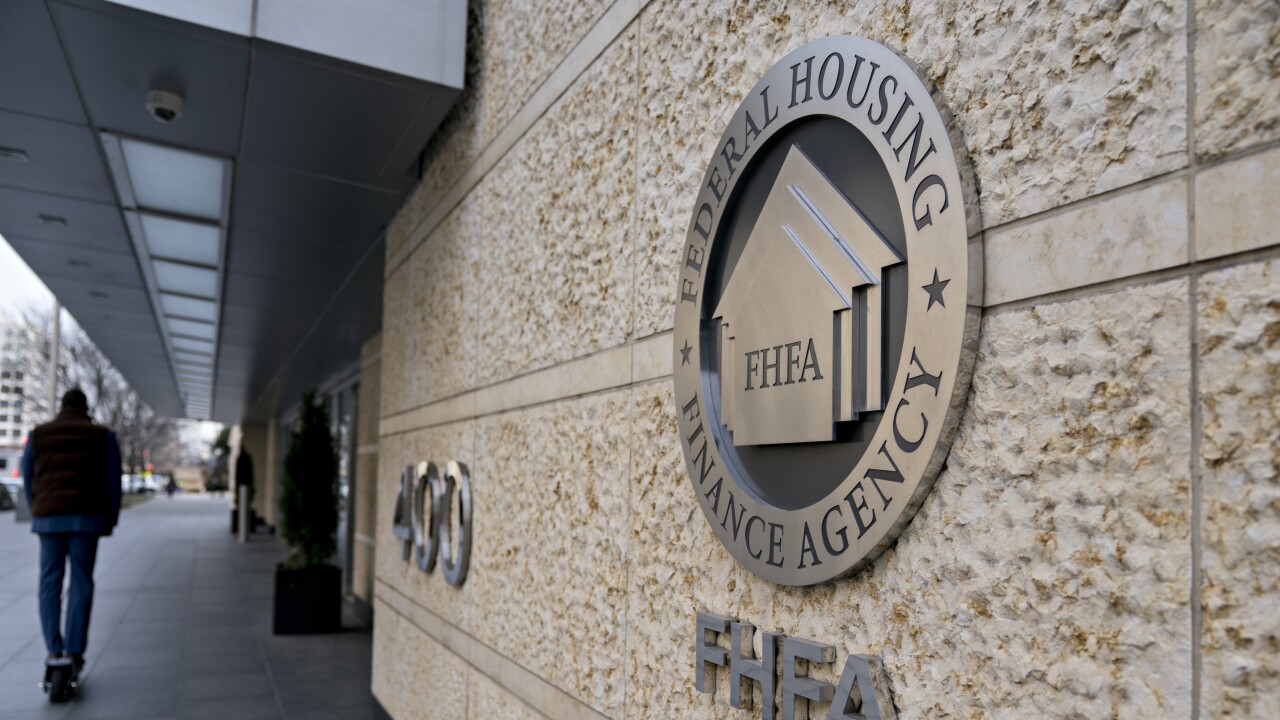In 2010, Florida was in the throes of an unprecedented housing crisis. One in every eight homes was in some stage of foreclosure.
Today, the foreclosure rate is one in every 83.
Because of that enormous drop, Florida's Hardest Hit Fund will stop accepting applications Jan. 31 for its three main mortgage assistance programs. The deadline signals a major wind-down of the $1.1 billion fund, which has helped thousands of struggling Florida homeowners like Dena Tingling.
After her husband died last year and her income plunged, the disabled preschool teacher qualified for 12 months of mortgage payments on her Largo home.
"It helped me tremendously," she said. "It got me to where I was able to get a modification to where my mortgage is within my income."
But tens of thousands of other needy Florida homeowners are still waiting or have been denied help because of what critics says is waste and mismanagement by the Florida Housing Finance Corp., the agency that administers the state's Hardest Hit Fund.
Chief among the critics is Christy Goldsmith Romero, special inspector general of the federal Troubled Asset Relief Program, better known as TARP.
"We've been hammering over and over again that the state agency needs to improve the efficiency and effectiveness in getting money out to homeowners," she told the Tampa Bay Times in a phone interview.
As Florida Housing processes 11,000 pending applications, "what we don't want to see (in new applications) is homeowners who qualify facing significant delays,'' Goldsmith Romero said. "We don't want to see state officials wasting TARP dollars I was appalled to see the cash bonuses of employees doubling and tripling.''
Last year, Florida Housing's executive director lost his job after a state audit revealed the agency had spent nearly $443,000 on employee bonuses and $52,000 on a lobster and filet mignon dinner. But Florida Housing takes issue with Romer's criticisms, saying it is now two years ahead of schedule in disbursing Hardest Hit money to help homeowners.
"The housing market in Florida has made a recovery and we are glad to have been a part of this effort with our innovative and effective Hardest Hit Fund programs," the agency said in a statement.
The U.S. Treasury Department created the $7.6 billion federal Hardest Hit Fund in 2010 to help Florida and 17 other states ravaged by the housing crash. States were to use their share of the money to "stabilize'' their housing markets, primarily by providing mortgage assistance to people who had lost their jobs or had suffered a financial blow due to death, divorce or disability.
Seven years later, in a release announcing the cutoff in new applications, Florida Housing said it had assisted 45,546 families as of the end of October. But the number of struggling homeowners who have received Hardest Hit help is lower than the release implies.
Of those 45,546 families, only about 30,000 were existing homeowners like Tingling. The other 15,000 benefited from a program that has used $210 million in Hardest Hit money for down payment assistance.
In other words, Florida has spent almost a fifth of its entire Hardest Hit allotment on people wanting to buy houses instead using that money to help people keep their houses.
The housing agency also boasts that Florida has disbursed most of its Hardest Hit money well ahead of the Dec. 31, 2020 deadline. But that's partly because the state decided not to apply for an additional $250 million it was eligible to receive -- money that might have kept hundreds of other Floridians out of foreclosure.
U.S. Sen. Bill Nelson, a frequent critic of Florida's Hardest Hit Fund, had one word for that decision: "Tragic."
Florida's Hardest Hit Fund got off to a slow start in 2010, a time when housing values had bottomed out and hundreds of thousands of Floridians could neither sell their homes nor afford their mortgage payments.
In Pinellas County, there were 13,313 new foreclosure filings that year alone. In Hillsborough, 11,704.
But instead of launching in all 67 counties, Florida Housing Finance decided to start with a pilot program only in Lee County and the Fort Myers area.
"Every day the state waits, people are losing their homes," Nelson said then as he accused Gov. Rick Scott, a critic of federal bailout programs, of "stalling" on Hardest Hit assistance.
Emails showed that Scott's office required the housing agency to clear "talking points." It nixed requests for agency staffers to attend foreclosure prevention forums to speak about the Hardest Hit Fund.
By the time the program finally rolled out statewide, six months had passed and the housing agency — in consultation with Scott's office — decided to slash benefits. Instead of 18 months of mortgage payments, as in the Lee County pilot, there would be only six.
It was too little help for homeowners like Sheila Ellison of St. Petersburg.
Injured by a resident at the drug treatment program where she worked, Ellison had to take lower-paying job and fell behind on her mortgage payments. After six months of Hardest Hit aid ran out, the bank began foreclosing.
Ellison scrapped together $3,000 to hire a foreclosure defense law firm to try to save her house. She nearly lost it two years ago when it was sold at a foreclosure auction but a judge vacated the sale after the bank agreed to lower the interest rate on her loan.

"It did help me," Ellison says of the Hardest Hit assistance, "but it was still a struggle. I had to come up with that money and I don't think I would have if (the help) had been for more than six months."
Eventually, state officials realized their mistake and increased the amount of assistance for homeowners for up to 12 months.
Among other early missteps in Florida's Hardest Hit program:
— Because criminal background checks were not required, Hardest Hit help went to a St. Petersburg woman who had pleaded guilty to unemployment compensation fraud and a Tampa man who had pleaded guilty to possession of child photography.
— For the first 18 months of the Hardest Hit program, the housing agency denied assistance to anyone whose homestead was in a condo development not approved by the Federal Housing Administration. That made hundreds of thousands of Florida condo owners ineligible for help. The agency changed course only after it was sued by a Pinellas condo owner.
— The agency set aside $50 million in Hardest Hit funds for a principal reduction program that over a year's time benefited only nine homeowners. It was not until late 2013 that agency launched a different principal reduction program — but stopped taking applications after 25,000 people applied in the first few days.
Critics argued the Florida's Hardest Hit Fund fund would have been more effective had it devoted more money sooner to reducing the principal owed on underwater mortgages. Brian England agrees.
After he lost his job with a mortgage company and his income was slashed in half, England qualified for a Hardest Hit program that temporarily made the payments on his Tampa condo, but once that ended, he still couldn't afford the condo, which he had bought at the peak of the boom for $125,000,
England then applied for the new Principal Reduction Program, which would have reduced the principal by up to $50,000. But he says his bank dragged its feet so long the application was denied.
The initial Hardest Hit assistance "kept me afloat for a while but lowering the principal definitely would have helped because of the housing debacle that reduced everybody's property (value)," England said.
England declared bankruptcy and surrendered the condo. It sold this year — for $68,000.
In 2015, the special inspector general, Goldsmith Romero, issued a blistering report that said Florida had consistently underperformed other states in using Hardest Hit money. Of the 17 participating states and the District of Columbia, Florida had the lowest rate of approving homeowners for assistance, one of the highest rates of denying assistance and an overall "slowness" in processing thousands of applications.
Five years after the program started, just 20 percent of applicants had received help.
About the time of the scathing report, Florida Housing started yet another Hardest Hit program that quickly made its numbers look better. That program pays up to $15,000 in down payment and closing costs for first- time home buyers in Pinellas, Hillsborough and nine other counties.
Through October, 15,242 buyers had received down payment assistance. That's a third of all Florida Hardest Hit recipients. It is seven times the number of homeowners getting help through a program for the elderly, and more than twice the number who have had their principal reduced.
Goldsmith Romero notes that home buyers are being approved for Hardest Hit help at a much higher rate than homeowners.
"When we see a disparity with 98 percent of buyers receiving (assistance) while 22 percent of owners are receiving it, it is a problem that needs to be looked at," she said. "Do you have the right criteria? Do have unnecessary red tape?"
Come Feb. 1, Florida's Hardest Hit Fund will offer only two programs — that for the elderly and the down payment assistance.





